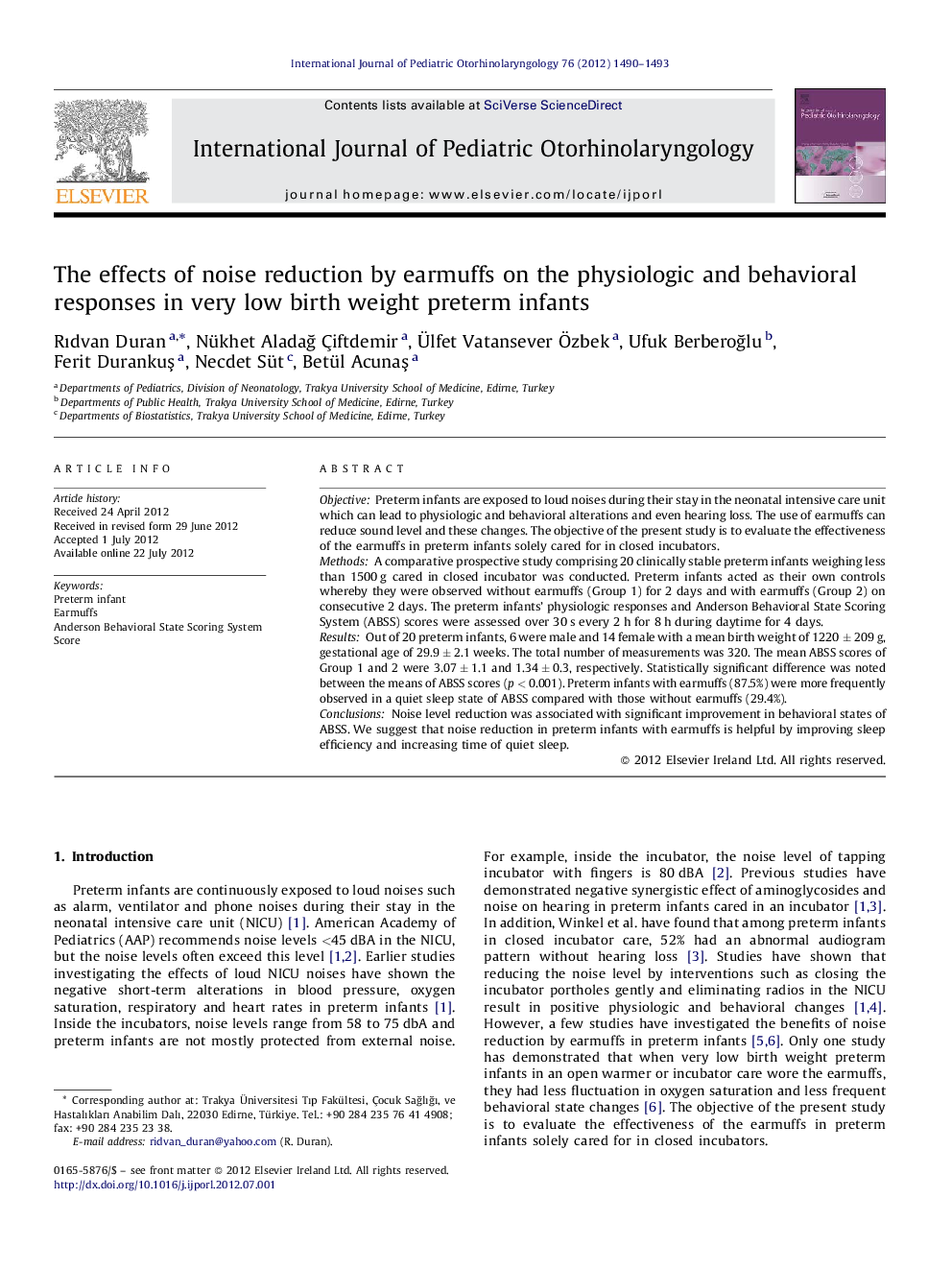| Article ID | Journal | Published Year | Pages | File Type |
|---|---|---|---|---|
| 6214116 | International Journal of Pediatric Otorhinolaryngology | 2012 | 4 Pages |
ObjectivePreterm infants are exposed to loud noises during their stay in the neonatal intensive care unit which can lead to physiologic and behavioral alterations and even hearing loss. The use of earmuffs can reduce sound level and these changes. The objective of the present study is to evaluate the effectiveness of the earmuffs in preterm infants solely cared for in closed incubators.MethodsA comparative prospective study comprising 20 clinically stable preterm infants weighing less than 1500 g cared in closed incubator was conducted. Preterm infants acted as their own controls whereby they were observed without earmuffs (Group 1) for 2 days and with earmuffs (Group 2) on consecutive 2 days. The preterm infants' physiologic responses and Anderson Behavioral State Scoring System (ABSS) scores were assessed over 30 s every 2 h for 8 h during daytime for 4 days.ResultsOut of 20 preterm infants, 6 were male and 14 female with a mean birth weight of 1220 ± 209 g, gestational age of 29.9 ± 2.1 weeks. The total number of measurements was 320. The mean ABSS scores of Group 1 and 2 were 3.07 ± 1.1 and 1.34 ± 0.3, respectively. Statistically significant difference was noted between the means of ABSS scores (p < 0.001). Preterm infants with earmuffs (87.5%) were more frequently observed in a quiet sleep state of ABSS compared with those without earmuffs (29.4%).ConclusionsNoise level reduction was associated with significant improvement in behavioral states of ABSS. We suggest that noise reduction in preterm infants with earmuffs is helpful by improving sleep efficiency and increasing time of quiet sleep.
